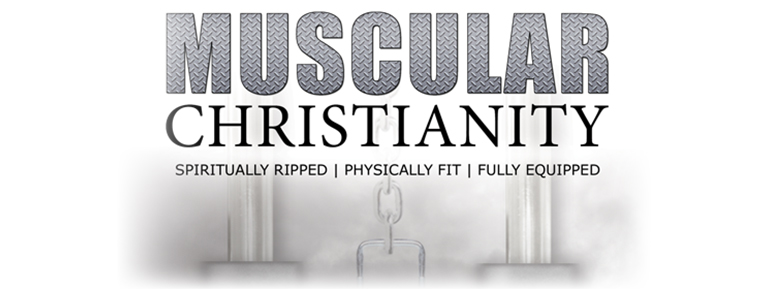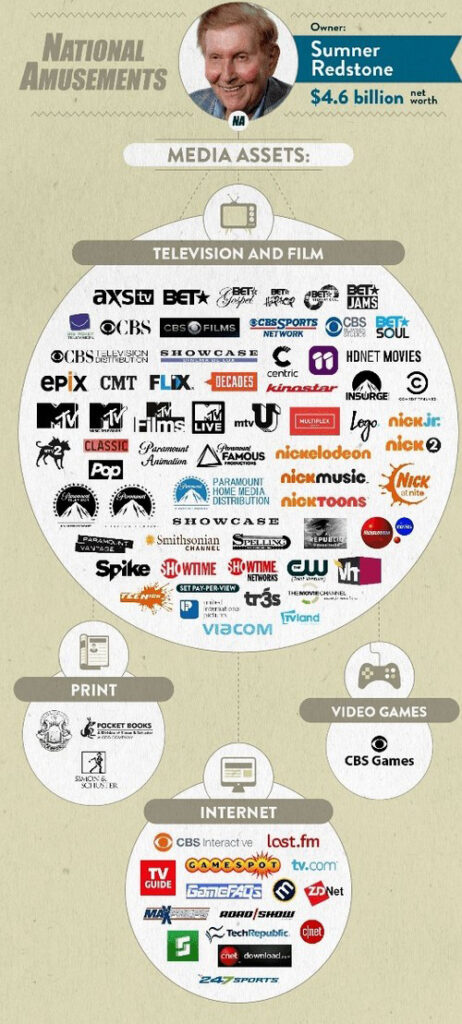
There are two kinds of information:
- the kind that brings clarity to the Truth
- the kind that is designed to distract from it
When you take a comment out of context, you don’t have a quote, you have a noise, which makes it harder to hear the truth. In order for something to qualify as evidence, it has to be both relevant and reliable. Otherwise, it’s not evidence, it’s an obstacle that makes it more difficult to arrive at the Truth.
In both instances, you have what amounts to a distraction. It’s not an argument, it’s a strategy that’s designed to shift attention away from the truth in order to make a flawed perspective appear more credible.
Those who see the Separation of Church and State as a means to silence any mention of Christianity in the marketplace will often quote recognizable personalities in an effort to “prove” that the Bible was not the foundation upon which the design of our government was based. In addition, they’ll submit random pieces of information that lack both relevance and reliability in order to speak something into reality that simply isn’t true.
They’re not bringing clarity to the truth, they’re distracting from it.
See for yourself…
I) Deism
Some want to believe that our Founding Fathers were Deists.
However helpful that might be to the person who wants to establish themselves as their own absolute by eliminating the Biblical bottom line cited by our Founding Fathers as that which justified the Revolutionary War and gave shape and substance to our system of government, it doesn’t really work let alone make any sense.
Let’s start by looking at what Deism is.
Deism is…
…belief in the existence of a supreme being, specifically of a creator who does not intervene in the universe. The term is used chiefly of an intellectual movement of the 17th and 18th centuries that accepted the existence of a creator on the basis of reason but rejected belief in a supernatural deity who interacts with humankind. (
google.com)
All About Philosophy breaks it down even more…
- God is identified through nature and reason, not revelation. Deists who believe in God, or at least a divine principle, follow few if any of the other tenets and practices of Christianity, Judaism, or any religion believing in a personal God. Any deist god is an eternal entity whose power is equal to his/her will.
- Some deists believe in Jesus Christ, while others do not. Most deists give regard to the moral teachings of Jesus.
- The Bible is not accepted as the infallible Word of God. Deists refute evidence of Jesus’ incarnation of God on earth. They deny the credibility of any writings from the Apostles or any “Spirit-inspired” writings.
- Deism has no creed, articles of faith, or holy book. Neither Satan nor hell exists, only symbols of evil which can be overcome by man’s own reasoning.
- Man is qualified to decide what reasonable path to follow regarding morals. Deists refer to themselves as “freethinkers.”
- Deists reject revelations and visions. There is no place for the nonsense of miracles and prophecies in an enlightened deist’s life.
- Deism has no need for ministers, priests, or rabbis. All an individual requires is their own common sense and the ability to contemplate their human condition.
They Prayed, They Fasted, and They Worshipped
The Second Continental Congress was comprised of men who prayed, not to a vague spiritual appliance, but to the God of the Bible. You can see that represented in the Chaplains they chose. And they prayed. They didn’t just install a chaplain for the sake of appearances. You see that documented in the Journals of Congress.
On sixteen different occasions during the Revolutionary War, Congress called for a “National Day of Prayer, Fasting, and Humiliation.” These weren’t token moments of silence. These were intentional and focused timeframes that specifically reference Christ and the need for forgiveness.
Here’s an excerpt from a a Proclamation dated the 20th of March, 1781.
The United States in Congress assembled, therefore do earnestly recommend, that Thursday the third day of May next, may be observed as a day of humiliation, fasting and prayer, that we may, with united hearts, confess and bewail our manifold sins and transgressions, and by sincere repentance and amendment of life, appease his righteous displeasure, and through the merits of our blessed Saviour…
You can see a copy of this Proclamation as it’s preserved in the Library of Congress by clicking here. To view the Proclamation itself, you’ll find that on page 285 (page 297 according to the PDF document) It’s important to note that this particular proclamation was written in part by James Madison.
Finally, Congress worshipped. On the occasion of Washington’s Inauguration on April 30, 1789, after concluding his remarks in the Senate Chamber, both the newly elected President and Congress proceeded through the crowds to St. Paul’s church where they attended a worship service.
Those who want to suggest that the Declaration of Independence, because it doesn’t specify Christ or God as He’s defined in the Bible when it references “Nature’s God,” or “Creator” or “Divine Providence” or the “Supreme Judge of the world,” are therefore free to assume that Congress had no specific deity in mind when they declared the United States to be “Absolved from all Allegiance to the British Crown” and in so doing declared themselves to be guilty of high treason. Again, you have to ignore all of what makes those references obvious given the God they prayed and referred to.
So, the Bible is irrelevant, Jesus is not the Son of God, sin is not an issue, therefore there is no need for forgiveness or redemption.
While there may be different manifestations of Deism, the common denominator is the way in which God is not an Authority or a Savior as much as He is an Architect. This leaves the individual free to determine for themselves the difference between right and wrong according to their ability to reason and “contemplate the human condition.”
But if “reason” is the gauge by which all things are measured, then the next question is, “Who defines what is reasonable?”
The answer to that question is the individual themselves. At that point, the true objective of the Deist becomes evident. They’re looking to establish themselves as their own absolute and in that way be able to dismiss any standard apart from whatever it is that they’re comfortable with.
In some ways, a Deist is a spiritual coward. Because they lack the courage to proclaim themselves as their own moral bottom line, knowing that to do so would reveal them to be both selfish and nonsensical, they concede the need for a supreme intellect to account for the intricacy of the universe, but then quietly assert the idea that there are no Divine principles, only personal preferences. They use words like “intellect,” “reason,” and “freethinking” to conceal a resolve to maintain the idea that they are both their own Standard and Savior and justify their approach by insisting that no other spiritual authority exists.
It appeals to those who don’t want to be accountable to anyone other than the one who stares back at them in the mirror every morning. It can be a very convenient way to justify a flawed approach to all that would otherwise be good, right, moral, pure, and just because, in the absence of a benchmark that exists entirely independently of an individual’s beliefs or feelings, you can redefine truth as being something determined by what’s preferred as opposed to what’s accurate.
This is why any reference to an spiritual absolute that transcends the individual has to be silenced. The Deist as well as the Atheist cannot afford to acknowledge a Reality that undermines their authority to dictate the difference between right and wrong. If there is a “god,” he is detached and therefore irrelevant to any conversation pertaining to good and evil.
But this is not the philosophical paradigm of the Founding Fathers.
They prayed, they fasted, and they worshipped (see sidebar). That was the context of the Declaration of Independence. They measured the “moral rectitude” of their intentions against a Biblical Standard and they declared that it was the God of the Bible Who guaranteed their rights and not the king of England. You can know that, not because they quoted a specific chapter and verse from Scripture, but because anytime they engaged in any kind of spiritual exercise, their focus was on Christ and not a vague, spiritual idea.
A) John Adams
John Adams is sometimes cited as a Deist, which is a strategic claim on the part of “Separation of Church and State” crowd because of his being so prominent in the early phases of our history.
The problem with that claim, however, is that it doesn’t line up with all that he said.
Why a Deist Doesn’t Hold a Bible
According to an article entitled, “The Founding Fathers’ Religious Wisdom” featured on americanprogress.org, Deists believe in a supreme being who created the universe to operate solely by natural laws—and after creation is therefore absent from the world. This belief in reason over dogma helped guide the founders toward a system of government that respected faiths like Christianity, while purposely isolating both from encroaching on one another so as not to dilute the overall purpose and objectives of either.
If that is the case, the Bible is nothing more than an ancient text and has no real bearing on all that is practical and important. There are no Divine Principles, only Natural Laws. There’s no such thing as Divine Intervention or an empty tomb. All you have is a supernatural starting point and the rest is up to the individual and however many likeminded people they can surround themselves with.
That is not the philosophical disposition of our Founders. The proclamations calling for a national day of prayer and fasting are asking for Divine Assistance in the context of confessing all that would otherwise prevent a compassionate and holy God from responding. A Deist doesn’t see God as anything other than absent and impersonal. There’s no need to seek Him out let alone concern yourself with whether or not the “rectitude of your intentions” meets with His Approval.
In short, you’re not going to ever see a Deist hold a Bible let alone submit to its Authority.
In a letter to Benjamin Rush in 1809, he said this:
There is no Authority civil or religious: there can be no legitimate Government but what is administered by this Holy Ghost. There can be no salvation without it. All, without it is Rebellion and Perdition, or in more orthodox words Damnation.1
Strange verbiage coming from someone who denies the deity of Christ and subscribes to a distant deity.
In a letter he wrote to Thomas Jefferson, he recalled how the delegates that signed the Declaration of Independence, despite coming from a variety of philosophical and political backgrounds, were nevertheless able to unite under the heading of Christianity and make their statement to King George as one voice…
The general Principles, on which the Fathers Atchieved Independence, were the only Principles in which, that beautiful Assembly of young Gentlemen could Unite, and these Principles only could be intended by them in their Address, or by me in my Answer. And what were these general Principles? I answer, the general Principles of Christianity, in which all those Sects were United: And the general Principles of English and American Liberty, in which all those young Men United, and which had United all Parties in America, in Majorities Sufficient to assert and maintain her Independence. 2
While serving in Congress, he was part of a committee tasked with writing a proclamation calling for a National Day of Prayer and Fasting…
This Congress, therefore, considering the present critical, alarming and calamitous state of these colonies, do earnestly recommend that Thursday, the 20th day of July next, be observed, by the inhabitants of the English colonies on this continent, as a day of public humiliation, fasting and prayer; that we may, with unified hearts and voices, unfeignedly confess and deplore our many sins; and offer up our joint supplications to the all-wise, omnipotent, and merciful Disposer of all events; humble beseeching him to forgive our iniquities… 3
That was June of 1775.
Bear in mind that Congress would issue sixteen proclamations throughout the Revolutionary War and Adams was a part of that collective that approved those fasts.
In 1798, as President, he called for a National Day of Prayer and Fasting as well…
I have therefore thought fit to recommend, and I do hereby recommend, that Wednesday, the 9th day of May next, be observed throughout the United States as a day of solemn humiliation, fasting, and prayer; that the citizens of these States, abstaining on that day from their customary worldly occupations, offer their devout addresses to the Father of Mercies agreeably to those forms or methods which they have severally adopted as the most suitable and becoming; that all religious congregations do, with the deepest humility, acknowledge before God the manifold sins and transgressions with which we are justly chargeable as individuals and as a nation, beseeching Him at the same time, of His infinite grace, through the Redeemer of the World, freely to remit all our offenses, and to incline us by His Holy Spirit to that sincere repentance and reformation which may afford us reason to hope for his inestimable favor and heavenly benediction; that it be made the subject of particular and earnest supplication that our country may be protected from all the dangers which threaten it; that our civil and religious privileges may be preserved inviolate and perpetuated to the latest generations; that our public councils and magistrates may be especially enlightened and directed at this critical period; that the American people may be united in those bonds of amity and mutual confidence and inspired with that vigor and fortitude by which they have in times past been so highly distinguished and by which they have obtained such invaluable advantages; that the health of the inhabitants of our land may be preserved, and their agriculture, commerce, fisheries, arts, and manufactures be blessed and prospered; that the principles of genuine piety and sound morality may influence the minds and govern the lives of every description of our citizens, and that the blessings of peace, freedom, and pure religion may be speedily extended to all the nations of the earth.
Given under my hand and the seal of the United States of America, at Philadelphia, this 23d day of March, A. D. 1798, and of the Independence of the said States the twenty-second. 4
Again, in 1799, he would issue a similar proclamation…
For these reasons I have thought proper to recommend, and I do hereby recommend accordingly, that Thursday, the 25th day of April next, be observed throughout the United States of America as a day of solemn humiliation, fasting, and prayer; that the citizens on that day abstain as far as may be from their secular occupations, devote the time to the sacred duties of religion in public and in private; that they call to mind our numerous offenses against the Most High God, confess them before Him with the sincerest penitence, implore His pardoning mercy, through the Great Mediator and Redeemer, for our past transgressions, and that through the grace of His Holy Spirit we may be disposed and enabled to yield a more suitable obedience to His righteous requisitions in time to come;5
If Adams was a deist, he would feel very awkward referring to the concept of forgiveness, let alone reference Christianity specifically as opposed to a generic religious philosophy.
Fact is, there is no forgiveness without the cross and there is no redemption without the empty tomb. None of what Adams advocates makes any sense apart from a conviction that acknowledges the historical reality of Calvary which is completely out of character for one who is supposedly a deist.
B) James Madison
James Madison is another example of someone who is classified as a deist as well, and yet, like John Adams, he refers to the priority of forgiveness. In March of 1781, he helped craft yet another proclamation calling for a National Day of Prayer and fasting as some of his congressional counterparts had done previously.
The United States in Congress assembled, therefore do earnestly recommend, that Thursday the third of May next, may be observed as a day of humiliation, fasting and prayer, that we may, with united hearts, confess and bewail our manifold sins and transgressions, and by sincere repentance and amendment of life, appease his righteous displeasure, and through the merits of our blessed Savior, obtain pardon and forgiveness: 6
Like Adams, these are not the words of a man who regulates the Reality of Christ and the Word of a God to either a generic philosophy or a nonexistent idea. Nor does it resonate as token gesture as much as it’s an intentional appeal to One Who is regarded as the Ultimate Absolute.
II) Context
It’s not difficult, however, to build a case for these men to be either humanistic in their regard for God’s Word or adamantly opposed to basing our system of government on a Biblical Standard. All that’s needed is to simply quote some of their comments out of their original context and create a meaning that is altogether different from what was originally intended.
For example…
A) The United States is Not in Any Sense Founded on the Christian Religion
John Adams said at one point:
As the government of the United States is not in any sense founded on the Christian Religion…7
If you’re familiar with the words of the “Marines Hymn,” then you’re familiar with the phrase, “…the shores of Tripoli.” That phrase refers to the “War with the Barbary Pirates” where Lieutenant Presley O’Bannon lead an exceptionally daring assault as part of the Battle of Dema. Prior to that war President John Adams issued a statement in an effort to assure the radical Muslims that comprised the Barbary Pirates that our country should not be perceived by them as a religious target in that we were not a Christian theocracy. In other words, our nation should not be considered by them to be an extension of the Crusades – we had no plans to invade Jerusalem or engage in any hostility against the Muslim nations. He said:
Art. 11. As the Government of the United States of America is not, in any sense, founded on the Christian religion; as it has in itself no character of enmity against the laws, religion, or tranquility, of Mussulmen (Muslims); and as the said States never entered into any war or act of hostility against any Mahometan (Mohammedan) nation, it is declared by the parties that no pretext arising from religious opinions shall ever produce an interruption of the harmony existing between the two countries8.
Most of those who try to take Adams words to mean that he was declaring that the United States was not based on Christian principles are required to leave out some context that is both obvious and crucial. But that is nevertheless the methodology that is often used by the person who has something to hide more so than they have something to say.
Thomas Essel, despite being among those who seemingly do not see God as central to our nation’s founding, wrote a great piece in 2016 entitled, “Secularists, Please Stop Quoting the Treaty of Tripoli” that elaborates on how citing that statement is irresponsible both academically and practically, when using it as a way to substantiate the claim that Christianity had not role in our Founders’ approach to liberty, rights and government.
B) Christianity Neither is, nor Ever Was a Part of the Common Law.
Another example of a comment taken out of context being introduced in the debate pertaining to the Separation of Church and State is when Thomas Jefferson said…
Christianity neither is, nor ever was a part of the common law.9
The statement was made as part of a letter to Doctor Thomas Cooper Monticello in 1814. In the letter, he was rehearsing the history of how some in the past had attempted to litigate matters according to Scripture as opposed to the Common Law – the Common Law is defined as “Common law is a body of unwritten laws based on legal precedents established by the courts.”10
Which God?
The first meeting of the Continental Congress happened on September 5, 1774. Among the first things that was decided was that each session should be opened up in prayer by Rev. Jacob Duche‘. While his initial presentation was typical of what might be expected from a man of the cloth, he then began to pray in a manner that was obviously unscripted.
Silas Deane, the Connecticut delegate, recorded that…
He read the lessons of the day, which were accidentally extremely applicable, and they prayed without book about ten minutes so pertinently, with such fervency, purity and sublimity of style and sentiment, and with such an apparent sensibility of the scenes and business before, that even Quakers shed tears.12
Bear in mind, too, that the Declaration of Independence was addressed to King George, the head of the Church of England. Any reference to Providence or the “Supreme Judge of the Universe,” or “Creator” was going to be interpreted by him as a reference to God as described in Scripture.
The point that Thomas Jefferson is making in his letter to Dr. Monticello is that you’re not going to find the specifics of Old Testament Law quoted verbatim in the Common Law. For example, the penalty for murder, as documented in the book of Exodus, is defined as a capital offense, if you limit your perspective to Exodus 21:12. Yet English Common Law qualifies things by saying it that it depends on the nature of the crime itself.
Jefferson goes on to say that…
…the alliance between Church and State in England has ever made their judges accomplices in the frauds of the clergy; and even bolder than they are. For instead of being contented with these four surreptitious chapters of Exodus, they have taken the whole leap, and declared at once that the whole Bible and Testament in a lump, make a part of the common law; ante 873: the first judicial declaration of which was by this same Sir Matthew Hale. And thus they incorporate into the English code laws made for the Jews alone, and the precepts of the gospel, intended by their benevolent author as obligatory only in foro concientiae (privately or morally rather than legally); and they arm the whole with the coercions of municipal law. In doing this, too, they have not even used the Connecticut caution of declaring, as is done in their blue laws, that the laws of God shall be the laws of their land, except where their own contradict them;11
What Jefferson is referring to is the way corrupted clergy had, in the past, attempted to enforce their will using their perceived moral superiority. The result was both hypocritical and nonsensical.
But the issue isn’t the Reality or the Authority of God’s Word. Jefferson refers to that Absolute in the Declaration of Independence and while he doesn’t specify a chapter and verse, let alone mention Christ by Name, the Second Continental Congress opened with a prayer made by Reverend Jacob Duche (see sidebar). The prayer wasn’t made to a generic deity, but to the God of the Bible. Nor were the aforementioned sixteen proclamations that came from Congress calling for a National Day of Prayer and Fasting directed towards a general religious idea, but to Christ Himself.
Jefferson made several comments throughout his life that made it clear he was not an orthodox Christian. He created his own version of the New Testament which omitted Christ’s miracles, including the Resurrection. Still, he was a committed churchgoer and appreciated the cultural role faith played played in society as well as its relevance to those discussions pertaining to human right and the “natural law.”
The problem that Jefferson and many of his contemporaries were trying to solve wasn’t Christianity’s influence on government, as far as it providing the necessary Moral and Philosophical Absolute that justifies resisting tyrannical authorities, but to restrict government’s influence on Christianity that inevitably translated to a corrupted doctrine as well as a corrupted legislature.
III) The Age of Reason
Thomas Paine is another recognizable personality that contemporary advocates of the Separation of Church and State love to quote.
At one point, he said:
All national institutions of churches, whether Jewish, Christian, or Turkish, appear to me no other than human inventions set up to terrify and enslave mankind, and monopolize power and profit.13
Bear in mind that Paine contributed significantly to the American cause by helping his fellow colonists appreciate that their goal should be independence and not just a better approach to taxes.
He made his point through a 47 page pamphlet entitled, “Common Sense.” It sold over 500,000 copies and helped to both solidify and clarify what America truly needed, in terms of Independence. As of 2006, it remains the all-time best-selling American title and is still in print today.14.
In addition to “Common Sense,” he also wrote 16 “Crisis” papers between 1776 and 1783. “The American Crisis. Number I,” published on December 19, 1776, was especially inspiring. So much so that George Washington had it read to his army at Valley Forge, who were on the verge of disintegration. His words helped motivate and replenish the resolve that was waning in the mind of the Continental soldier.
He began by saying that these were the times that tried men’s souls and it’s those that persevere that will ultimately deserve the thanks of every man and woman because of what they fight for:
THESE are the times that try men’s souls. The summer soldier and the sunshine patriot will, in this crisis, shrink from the service of their country; but he that stands it now, deserves the love and thanks of man and woman. Tyranny, like hell, is not easily conquered; yet we have this consolation with us, that the harder the conflict, the more glorious the triumph. What we obtain too cheap, we esteem too lightly: it is dearness only that gives every thing its value. Heaven knows how to put a proper price upon its goods; and it would be strange indeed if so celestial an article as FREEDOM should not be highly rated. Britain, with an army to enforce her tyranny, has declared that she has a right (not only to TAX) but “to BIND us in ALL CASES WHATSOEVER,” and if being bound in that manner, is not slavery, then is there not such a thing as slavery upon earth. Even the expression is impious; for so unlimited a power can belong only to God.15
Thomas Paine – “A Wretched Contrivance”
Jesus Christ wrote no account of himself, of his birth, parentage, or anything else. Not a line of what is called the New Testament is of his writing. The history of him is altogether the work of other people; and as to the account given of his resurrection and ascension, it was the necessary counterpart to the story of his birth. His historians, having brought him into the world in a supernatural manner, were obliged to take him out again in the same manner, or the first part of the story must have fallen to the ground.
The wretched contrivance with which this latter part is told, exceeds everything that went before it. The first part, that of the miraculous conception, was not a thing that admitted of publicity; and therefore the tellers of this part of the story had this advantage, that though they might not be credited, they could not be detected. They could not be expected to prove it, because it was not one of those things that admitted of proof, and it was impossible that the person of whom it was told could prove it himself.
But the resurrection of a dead person from the grave, and his ascension through the air, is a thing very different, as to the evidence it admits of, to the invisible conception of a child in the womb. The resurrection and ascension, supposing them to have taken place, admitted of public and ocular demonstration, like that of the ascension of a balloon, or the sun at noon day, to all Jerusalem at least. A thing which everybody is 9 required to believe, requires that the proof and evidence of it should be equal to all, and universal; and as the public visibility of this last related act was the only evidence that could give sanction to the former part, the whole of it falls to the ground, because that evidence never was given. Instead of this, a small number of persons, not more than eight or nine, are introduced as proxies for the whole world, to say they saw it, and all the rest of the world are called upon to believe it. But it appears that Thomas did not believe the resurrection; and, as they say, would not believe without having ocular and manual demonstration himself. So neither will I; and the reason is equally as good for me, and for every other person, as for Thomas. (excerpt from The Age of Reason)
He then says this:
I have as little superstition in me as any man living, but my secret opinion has ever been, and still is, that God Almighty will not give up a people to military destruction, or leave them unsupportedly to perish, who have so earnestly and so repeatedly sought to avoid the calamities of war, by every decent method which wisdom could invent. Neither have I so much of the infidel in me, as to suppose that He has relinquished the government of the world, and given us up to the care of devils; and as I do not, I cannot see on what grounds the king of Britain can look up to heaven for help against us: a common murderer, a highwayman, or a house-breaker, has as good a pretence as he.16
A Deist believes in a deity that created the universe and then withdrew from any sort of practical interaction with what had been created. Paine doesn’t refer to that kind of “god” in his writings. Rather, he positions Him as Someone who sees and acts on behalf of those whose cause is just.
But that doesn’t mean he believed in the empty tomb.
He would later make those convictions known in the “Age or Reason,” where he referred to Christianity as a “fable” and rejected the resurrection of Christ (see sidebar).17 It’s here where Paine not only became a stench in the minds of many Americans, but he also helped clarify the true religious convictions of those who some would’ve otherwise thought were likeminded.
A) Bad Influence on Society
For example, John Adams referred to Thomas Paine as someone who had a dramatically bad influence on society…
I am wiling you Should call this the Age of Frivolity as you do: and would not object if You had named it the Age of Folly, Vice, Frenzy Fury, Brutality, Daemons, Buonaparte, Tom Paine, or the Age of The burning Brand from the bottomless Pitt: or any thing but the age of Reason. I know not whether any Man in the World has had more influence on its inhabitants or affairs for the last thirty years than Tom Paine. There can be no Severer satyr in the Age. For Such a mongrel between Pigg and Puppy, begotten by a wild Boar on a Bitch Wolf; never before in any Age of the World was suffered by the Poltroonery of mankind, to run through Such a Career of Mischief. Call it then the Age of Paine. He deserves it much more, than the Courtezan who was consecrated to represent the Goddess in the Temple at Paris, and whose name, Tom has given to the Age. The real intellectual faculty has nothing to do with the Age the Strumpet or Tom.18
Adams viewed Paine’s Age of Reason not as the embodiment of the Enlightenment but as a “betrayal” of it.19 If Adams was a Deist, he would’ve been applauding Paine rather than denouncing him. In a diary entry dated July 26, 1796, he said:
The Christian Religion is, above all the Religions that ever prevailed or existed in ancient or modern Times, The Religion of Wisdom, Virtue, Equity and Humanity, let the Blackguard Paine say what he will. It is Resignation to God—it is Goodness itself to Man.20
And what Adams is saying is representative of what many in the country believed to be, not only heretical, but positively evil.
B) Burn It!
At one point, Benjamin Franklin corresponded with someone who, although the context suggests Thomas Paine, both the date and the person he was speaking to are subjective. But what he had to say is nevertheless relevant to the subject matter here because of the way in which Franklin responds to the idea being proposed by the person he was addressing who was saying that there is no God.
He says:
I have read your manuscript with some attention. By the argument it contains against a particular Providence, though you allow a general Providence, you strike at the foundations of all religion. For without the belief of a Providence, that takes cognizance of, guards, and guides, and may favor particular persons, there is no motive to worship a Deity, to fear his displeasure, or to pray for his protection. I will not enter into any discussion of your principles, though you seem to desire it. At present I shall only give you my opinion, that, though your reasonings are subtile and may prevail with some readers, you will not succeed so as to change the general sentiments of mankind on that subject, and the consequence of printing this piece will be, a great deal of odium drawn upon yourself, mischief to you, and no benefit to others. He that spits against the wind, spits in his own face.21
He’s basically saying to the person who is seeking his counsel that to publish anything that denounces all religion as being fictitious, not only will he will not succeed in convincing the general population that there is no God, but he will be perceived as both disgusting and disgraceful.
He concludes by saying that the piece being considered for publication be burned…
I would advise you, therefore, not to attempt unchaining the tiger, but to burn this piece before it is seen by any other person; whereby you will save yourself a great deal of mortification by the enemies it may raise against you, and perhaps a good deal of regret and repentance. If men are so wicked with religion, what would they be if without it. 22
Deism, according to some, was very popular during the 18th century. But Franklin seems to push back on that idea by telling his protege that to advocate the idea that all religion is bogus is not at all consistent with popular opinion.
He makes that even more clear in a pamphlet he wrote in 1784 entitled, “Information to Those Who Would Remove to America.”
Hence bad Examples to Youth are more rare in America, which must be a comfortable Consideration to Parents. To this may be truly added, that serious Religion under its various Denominations, is not only tolerated but respected and practised. Atheism is unknown there, Infidelity rare & secret, so that Persons may live to a great Age in that Country without having their Piety shock’d by meeting with either an Atheist or an Infidel.23
After creating the Constitution in 1787, it was circulated among the states where special ratifying conventions were convened for the express purpose of determining whether or not it met with their approval.
The idea that Deism was a common conviction among in the United States during the time of the Revolution and when the Constitution was being ratified is made to look even more unlikely when you look at the comments made by those who were evaluating the Bill of Rights in the context of the religious climate that existed at that time. You see that in the observations made by Samuel Johnston, the governor of the state of North Carolina.
I know but two or three states where there is the least chance of establishing any particular religion. The people of Massachusetts and Connecticut are mostly Presbyterians. In every other state, the people are divided into a great number of sects. In Rhode Island, the tenets of the Baptists, I believe, prevail. In New York, they are divided very much: the most numerous are the Episcopalians and the Baptists. In New Jersey, they are as much divided as we are. In Pennsylvania, if any sect prevails more than others, it is that of the Quakers. In Maryland, the Episcopalians are most numerous, though there are other sects. In Virginia, there are many sects; you all know what their religious sentiments are. So in all the Southern States they differ; as also in New Hampshire. I hope, therefore, that gentlemen will see there is no cause of fear that any one religion shall be exclusively established.24
While Deism might’ve been popular among a select group of people in the country at the time the Constitution was being created, it most certainly was not the main school of thought and anyone who wants to believe differently has to ignore the commentary being made by objective observers during that time.
IV) Conclusion
When you’re talking to a fool, you want to be careful because they’re not listening to you as much as they’re waiting for you to stop talking so they can respond to whatever you’re declaring to be true by saying either that’s your opinion or that’s not fair.
In their mind, they’re either a victim or they’re just different but they’re never wrong.
This is why anything that resonates as an Absolute has to be silenced because in their mind, they are their own bottom line. There are no standards, only situations. There is no evidence, there is only perspective.
Christianity is the spiritual foundation upon which our country is built. That is not something that can be established or dismissed according to a individual’s personal bias. It’s a demonstrable fact according to documented history, national archives, and reams of personal correspondence that occurred between those who were present and engaged in the discussions that produced our system of government.
But however welcome Christianity may have been in the face of an overwhelming enemy and a very uncertain future, once the guns had been laid down and the war was over, some were quick to insist that it was anything but the power and the Substance of Scripture that inspired and guided those that defined our cause as well as those who fought for that cause.
Benjamin Franklin had to remind the Constitutional Convention that they had begun all of their Congressional meetings during the war with prayer…
Mr. President:
The small progress we have made after 4 or five weeks close attendance & continual reasonings with each other — our different sentiments on almost every question, several of the last producing as many noes as ays, is methinks a melancholy proof of the imperfection of the Human Understanding. We indeed seem to feel our own want of political wisdom, since we have been running about in search of it. We have gone back to ancient history for models of government, and examined the different forms of those Republics which having been formed with the seeds of their own dissolution now no longer exist. And we have viewed Modern States all round Europe, but find none of their Constitutions suitable to our circumstances.
In this situation of this Assembly groping as it were in the dark to find political truth, and scarce able to distinguish it when presented to us, how has it happened, Sir, that we have not hitherto once thought of humbly applying to the Father of lights to illuminate our understandings? In the beginning of the contest with G. Britain, when we were sensible of danger we had daily prayer in this room for the Divine Protection. — Our prayers, Sir, were heard, and they were graciously answered. All of us who were engaged in the struggle must have observed frequent instances of a Superintending providence in our favor. To that kind providence we owe this happy opportunity of consulting in peace on the means of establishing our future national felicity. And have we now forgotten that powerful friend? Or do we imagine that we no longer need His assistance.
I have lived, Sir, a long time and the longer I live, the more convincing proofs I see of this truth — that God governs in the affairs of men. And if a sparrow cannot fall to the ground without [H]is notice, is it probable that an empire can rise without [H]is aid? We have been assured, Sir, in the sacred writings that “except the Lord build they labor in vain that build it.” I firmly believe this; and I also believe that without [H]is concurring aid we shall succeed in this political building no better than the Builders of Babel: We shall be divided by our little partial local interests; our projects will be confounded, and we ourselves shall be become a reproach and a bye word down to future age. And what is worse, mankind may hereafter from this unfortunate instance, despair of establishing Governments by Human Wisdom, and leave it to chance, war, and conquest.
I therefore beg leave to move — that henceforth prayers imploring the assistance of Heaven, and its blessings on our deliberations, be held in this Assembly every morning before we proceed to business, and that one or more of the Clergy of this City be requested to officiate in that service. 25
In 1854, there was a move to abolish chaplains in the military. It was proposed that this constituted a violation of church and state. James Meacham, one of the Representatives from Vermont, from the Committee on the Judiciary, made the following report:
While your committee believe that neither Congress nor the army or navy should be deprived of the service of chaplains, they freely concede that the ecclesiastical and civil powers have been, and should continue to be, entirely divorced from each other. But we beg leave to rescue ourselves from the imputation of asserting that religion is not needed to the safety of civil society. It must be considered as the foundation on which the whole structure rests. Laws will not have permanence or power without the sanction of religious sentiment-without a firm belief that there is a power above us that will reward our virtues and punish our vices. In this age there can be no substitute for Christianity; that, in its general principles, is the great conservative element on which we must rely for the purity and permanence of the republic, and they expect it to remain the religion of their descendants. There is a great and very prevalent error on this subject in the opinion that those who organized the government did not legislate on religion. They did legislate on it by making it free to all, “to the Jew and the Greek, to the learned and the unlearned.” The error has risen from the belief that there is no legislation unless in permissive or restricting enactments. But making a thing free is as truly a part of legislation as confining it by limitations; and what the government has made free, it is bound to keep free.26
There has always been a constituency in our country that want to pretend that Christianity was not the philosophical starting point from which our Founders began. But as Meacham points out, Christianity is the, “…great conservative element on which we must rely for the purity and permanence of the republic.”
Every Form of Government…
Every form of government is distinctive in the way political power is allocated. In some cases, it’s an authoritative dynamic where the ruling class is established apart from the preferences of those they govern. In other instances, it’s a more representative approach where people can choose how they want to be governed and who it is that staffs those in positions of authority.
That which justifies a particular approach to politics is ultimately determined by how a human being is defined.
- A monarchy labels an individual according to their family crest – are you noble or are you common?
- Socialism classifies people according to the extent to which they own the means of production. If you’re wealthy, it’s assumed that you’re exploiting the working class and the common laborer is therefore perpetually oppressed.
- A Dictatorship defines the individual based on the extent to which they’re willing to comply.
In every one of the above instances, you have a system in place that reserves the right to classify an individual in a way that can then justify who is chosen to lead and how their subordinates are to behave.
The United States also classified individuals, but not as human beings to be sorted, but as individuals who were created as equal in the image of their Creator.
You don’t remove Christianity as a foundational element and don’t immediately replace it with a different theological premise.
With every form of government, you have a system in place that justifies the method by which leaders are chosen and the standard by which a person’s behavior is measured according to the way it classifies an individual. You cannot attempt to define an individual’s worth or the moral quality of their conduct without using a benchmark that is spiritual in nature.
While there are numerous religious schools of thought, Christianity is a standout because of the way every other religion empowers the individual with the ability to facilitate their own salvation. The gospel, on the other hand, says that the only thing you contribute to your salvation is the sin that makes it necessary.
It’s a tall order for a person to acknowledge that they are not their own absolute, but once they’re convinced of their need for a Redeemer, not only is the empty tomb something to embrace and celebrate, but it also provides a sense of worth and purpose that cannot be changed or diminished by any human authority.
This is why the Declaration of Independence resonated as a cause and not just a complaint because of the way we began by saying our rights are not dispensed by a king as much as they are guaranteed by God. But this is also why authoritarian governments will go out of their way to destroy every Christian element within their culture because of the way it must maintain itself as the ultimate source and standard for all things related to the human experience.
The fact of the matter is there is no such thing as the “separation of church and state” – at least not in the way it is typically asserted into conversations today. Those that want to eliminate everything from our national motto to the display of the Ten Commandments in public areas want to be perceived as advocates for a government that makes no reference to God or a religion of any kind.
But because it’s impossible to base any form of government on some kind of spiritual absolute, the attempts made by those like the ACLU to eliminate Christianity from the marketplace are revealed as genuinely sinister. They’re not concerned about the “separation” of church and state, as much as they’re wanting to establish a new “church” where there are no principles only preferences.
In order for the First Amendment to be cited as the basis for that kind of approach, you have to ignore every reference to Christianity made by our Founding Fathers that would’ve then qualified them as being guilty of violating the very laws they put in place.
The First Amendment means that you have the right to choose whatever church you want to attend. It doesn’t mean you have the right to change the spiritual foundation upon which our nation is built.
When you remove that foundation, the result is not equality. Instead, you have instituted the very same situation that inspired the Revolution to begin with in that your rights and your happiness are now regulated and defined by a human agency. You extend that line of reasoning to its inevitable conclusion and you have the same rationale that justified slavery, tyranny, and all kinds of oppression.
It’s because we are “created” and not merely “sorted,” that we have rights and we can prosper. But there are rules and there is a Referee. Processed correctly, you see those rules as tools to help you get across the goal line and the Referee as Someone Who is there to prevent those things that would otherwise slow you down from getting in your way.
To the person who sees themselves as their own authority, none of that is appealing because of the way it compels them to retool their approach to themselves and the world around them. In order to preserve themselves as their own deity, they have to deploy a number of tactics that include the positioning of themselves as victims or a totalitarian society and the flooding of the marketplace with information engineered to distract from the truth rather than bring clarity to it.
In an address to the Delaware Nation, George Washington said:
You do well to wish to learn our arts and ways of life and above all—the religion of Jesus Christ. These will make you a greater and happier people than you are. Congress will do every thing they can to assist you in this wise intention; and to tie the knot of friendship and union so fast—that nothing shall ever be able to loose it.27
It is the religion of Jesus Christ that gives shape and substance to our laws and system of government. While you have the choice to determine for yourself how you want to worship or even if you want to worship, you have that choice because you are seen through the lens of a biblical paradigm. Remove that foundation and you are now perceived according to a perspective that is as temporal as it is corruptible. That is the purpose of the “separation of church and state.” It’s not to limit the Bible’s influence on government, but to restrict government’s influence on the Bible.
That was the context of the First Amendment and if you don’t believe that, there’s an abundance of evidence that points irrevocably to that fact.
See for yourself…
1. “From John Adams to Benjamin Rush, 21 December 1809” “Founders Online”, https://founders.archives.gov/documents/Adams/99-02-02-5485, accessed April 2, 2024
2. “John Adams to Thomas Jefferson 28 June 1813”, “Founders Online”, https://founders.archives.gov/documents/Jefferson/03-06-02-0208#:~:text=The%20general%20Principles%2C%20on%20which,by%20me%20in%20my%20Answer, accessed February 2, 2022
3. “Christian Heritage Fellowship”, “June 12, 1775: First Congressional Fasting and Prayer Proclamtion”, “https://christianheritagefellowship.com/june-12-1775-first-congressional-fasting-and-prayer-proclamation/#Toc3, accessed April 4, 2024
4. “The American Presidency Project”, “Proclamation 8—Recommending a National Day of Humiliation, Fasting, and Prayer”, https://www.presidency.ucsb.edu/documents/proclamation-8-recommending-national-day-humiliation-fasting-and-prayer, accessed April 4, 2024
5. “The American Presidency Project”, “Proclamation—Recommending a National Day of Humiliation, Fasting, and Prayer”, https://www.presidency.ucsb.edu/documents/proclamation-recommending-national-day-humiliation-fasting-and-prayer, accessed April 4, 2024
6. “Christian Heritage Fellowship”, “March 20, 1781: Seventh Congressional Fasting Proclamation”, https://christianheritagefellowship.com/seventh-congressional-fasting-proclamation/#CommitteeComposesProclamation, accessed April 4, 2024
7. “The United Statutes at Large of the United States of America”, “Library of Congress”, https://tile.loc.gov/storage-services/service/ll/llsl//llsl-vol-8-foreign-treaties/llsl-vol-8-foreign-treaties.pdf (go to page 155), accessed April 7, 2024
8. Ibid
9. “To Doctor Thomas Cooper Monticello, Feburary 10, 1814”, “Library of Congress” https://www.loc.gov/resource/mtj1.047_0260_0267/?sp=5&st=image” accessed April 7< 2024
10. “Common Law: What It Is, How It’s Used, and How It Differs From Civil Law”, Investopedia”, https://www.investopedia.com/terms/c/common-law.asp#:~:text=Common%20law%2C%20also%20known%20as,new%20legislation%20to%20be%20enacted., accessed April 7, 2024
11. “To Doctor Thomas Cooper Monticello, Feburary 10, 1814”, “Library of Congress” https://www.loc.gov/resource/mtj1.047_0260_0267/?sp=5&st=image” accessed April 7< 2024
12. “Collections of the New-York Historical Society for the Year 1886”, https://books.google.com/books?id=81UOAAAAIAAJ&printsec=frontcover&source=gbs_ge_summary_r&cad=0#v=onepage&q=quakers%20shed%20tears&f=true, p20, accessed April 7, 2024
13. “Monticello Digital Classroom”, “The Age of Reason”, https://classroom.monticello.org/view/72342/, accessed May 10, 2024
14. Kaye, Harvey J. (2005), Thomas Paine and the Promise of America, New York: Hill and Wang, ISBN 0-8090-9344-8
15. “American Battlefield Trust”, “The American Crisis, Thomas Paine, 1776-1783”, https://www.battlefields.org/learn/primary-sources/american-crisis-0, accessed April 12, 2025
16. Ibid
17. “The Age of Reason”, “Feedbooks”, Thomas Paine, https://klymkowsky.github.io/klymkowskylab/Readings/Thomas%20Paine%20-%20The%20Age%20of%20Reason.pdf, p9-10, accessed April 21, 2024
18. “From John Adams to Benjamin Waterhouse, 29 October 1805”, “Founders Online”, https://founders.archives.gov/documents/Adams/99-02-02-5107, accessed May 1, 2024
19. Gaustad, Edwin S. Neither King nor Prelate: Religion and the New Nation, 1776–1826. Grand Rapids, MI: William B. Eerdmans Publishing Co. (1993), 89.
20. “Founders Online”, “July 26. 1796”, https://founders.archives.gov/documents/Adams/01-03-02-0013-0002-0015, accessed May 2, 2024
21. “The Private Correspondence of Benjamin Franklin”, printed for Henry Colburn, London, 1817, p281 (https://books.google.com/books?id=pRY3AAAAYAAJ&printsec=frontcover&source=gbs_ge_summary_r&cad=0#v=onepage&q=tiger&f=false, accessed May 4, 2024)
22. Ibid
23 “Founders Online”, “Information to Those Who Would Remove to America”, Benjamin Franklin, https://founders.archives.gov/documents/Franklin/01-41-02-0391, accessed May 4, 2024
24.”The Debates in the Several State Conventions of the Adoption of the Federal Constitution Vol. 4″ Jonathan Elliot, editor, Washington, DC: Jonathan Elliot, 1836, p137 (“The Online Library of Liberty”, “The Debates in the Several State Conventions of the Adoption of the Federal Constitution Vol. 4”, https://oll-resources.s3.us-east-2.amazonaws.com/oll3/store/titles/1908/Elliot_1314-04_EBk_v6.0.pdf, accessed May 5, 2024)
25. “Journal of the Constitutional convention, kept by James Madison : Reprinted from the ed. of 1840, which was pub. under direction of the United States government from the original manuscripts. A complete index specially adapted to this ed. is added / Ed. by E. H. Scott,” Scott Foresman and Company, Chicago, Atlanta, New York,” 1893, p259 (“HathiTrust” “Journal of the Constitutional convention, kept by James Madison : Reprinted from the ed. of 1840, which was pub. under direction of the United States government from the original manuscripts. A complete index specially adapted to this ed. is added / Ed. by E. H. Scott” https://babel.hathitrust.org/cgi/pt?id=pst.000022219770&seq=6&q1=prayer, accessed May 10, 2024)
26. “Chaplains of the General Government with Objections to Their Employment Considered”, Lorenzo D Johnson, Sheldon, Blakeman & Co., New York, NY, 1856, p17 (“Google”, “Chaplains of the General Government with Objections to Their Employment Considered”, https://books.google.com/books?id=Antm-sezPUwC&q=Meacham#v=onepage&q=descendants&f=false, accessed May 10, 2024
27. “Founders Online”, “Address to the Delaware Nation, 12 May 1779”, https://founders.archives.gov/documents/Washington/03-20-02-0388#GEWN-03-20-02-0388-fn-0003, accessed May 2, 2024
For further reading:
The God Delusion vs The God Conclusion | Part I: FIT | George Washington’s Prayer Journal | The Appropriation of Locke











 If you’ve accessed this page, chances are pretty good you’ve purchased the “90 Day Bible Study Guide” and you’re needing the Answer Key to those questions that represent a 90 day “tour” of God’s Word.
If you’ve accessed this page, chances are pretty good you’ve purchased the “90 Day Bible Study Guide” and you’re needing the Answer Key to those questions that represent a 90 day “tour” of God’s Word.

 In a WebFX article entitled, “The 6 Companies That Own (Almost) All Media,” 6 companies are listed that represent the bulk of what dictates the headlines, the punchlines, the hooks and the books that we consume every day.8
In a WebFX article entitled, “The 6 Companies That Own (Almost) All Media,” 6 companies are listed that represent the bulk of what dictates the headlines, the punchlines, the hooks and the books that we consume every day.8









You must be logged in to post a comment.